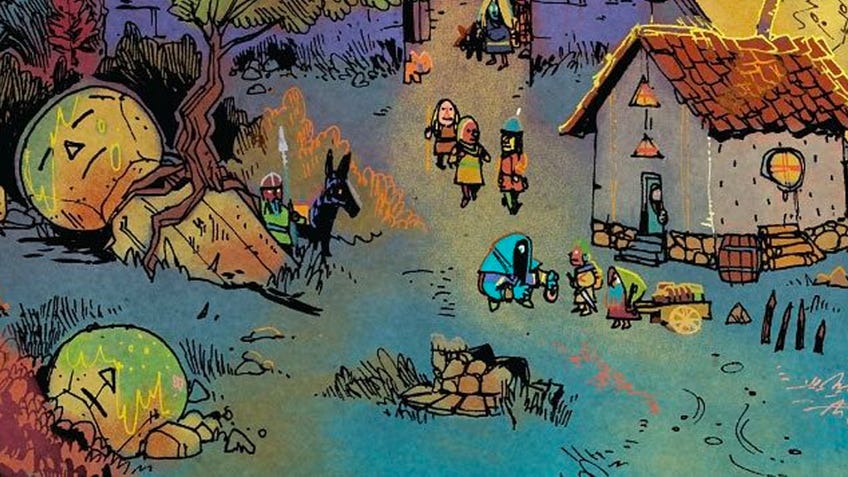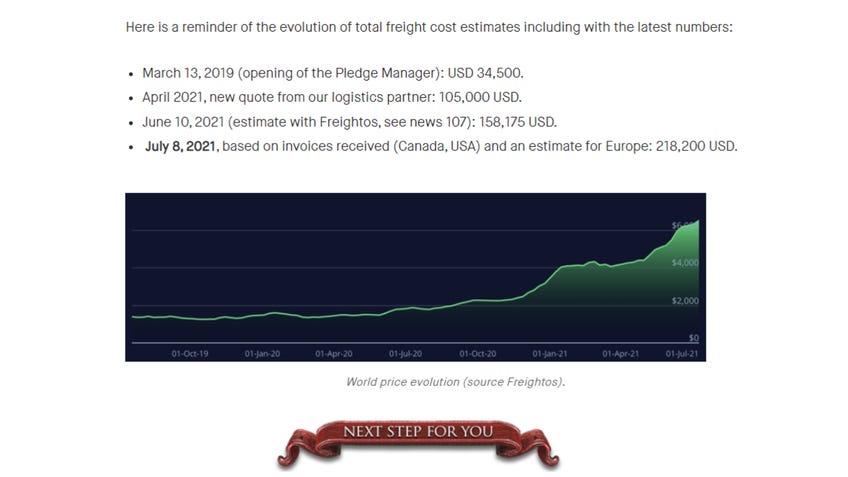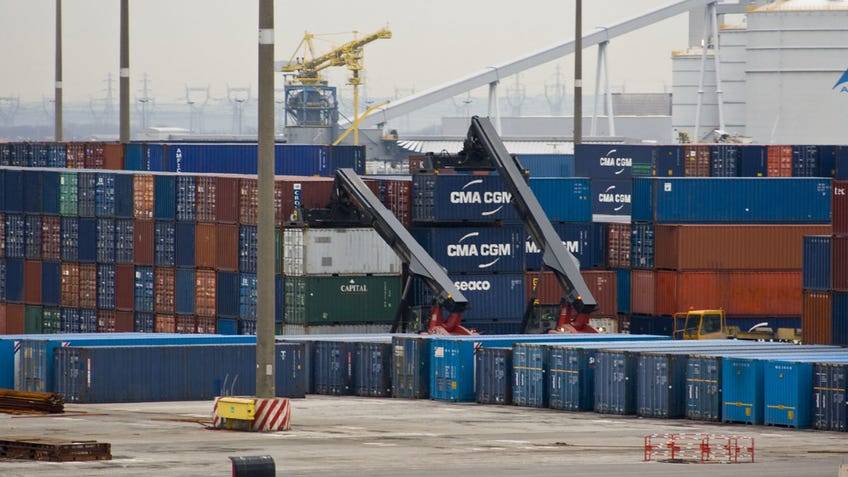Board game publishers don’t expect shipping woes to end soon, prepare for higher fees and longer delays
Leder Games’ Patrick Leder and Marshall Britt discuss the rippling effects on smaller publishers.
The cost to ship board games across the globe has been steadily increasing throughout 2021, and many publishers have claimed they long ago passed untenable rates, leading to delayed fulfillment or creators asking for additional shipping funds years after their initial Kickstarter campaign had ended.
Marshall Britt, operations director for Root, Fort, Vast and Oath studio Leder Games, said he first noticed substantial increases to shipping costs in January, rising above twice or three times their usual rates for that time of year - and showing little indication of slowing down.
“We are seeing approximately six times ocean booking rates as of now,” Britt told Dicebreaker via email. “The indication I’ve gotten from our shipping agents is that we should expect pricing to remain very high for the rest of the year and perhaps beyond.”
Creative director Patrick Leder said the company tried to ship a few containers out of China before Lunar New Year observances shut down the majority of business for three weeks. “In a typical year we would pay US$5,000 (£3,600) per container in the weeks surrounding late January. We bid US$19,000 (£13,750) for a container and did not get one. That was the moment I knew we were going to have a problem,” he said.
The ballooning prices stem from a logistical shortage of shipping containers that most board game publishers use to transport their boxes from manufacturing facilities in China to countries around the world. As industries began recovering from the economic shutdown caused by the COVID-19 pandemic, an influx of orders immediately consumed any available physical freight and prompted bidding wars for the precious few still in circulation.
This cause and effect chain was exacerbated by differing national responses to the pandemic, alongside both subsequent outbreaks in East Asia and the premature reopening of business in the United States and Europe. Empty containers must return to China, but port congestion in Western nations meant many empty crates sat unused despite an ever increasing backlog. The delay could reportedly continue - or worsen - throughout the rest of 2021.

“With limited space to store games, manufacturing facilities rely on a steady supply of containers to fill with products and send back out; mild disruptions often cause fairly major delays,” Britt said. “A major disruption of this magnitude is unprecedented, and I’m afraid we likely haven’t begun to see the full gamut of effects this will potentially cause.”
Companies like Leder Games are seeing a 50 to 100% rise in their landed cost, which Leder defines as the price per unit needed to deliver an item from wherever it was manufactured to a depot. In Leder Games’ case, the publisher has decided to eat as much of that cost as possible in order to not pass it on to individuals purchasing its games, a decision its owner admits is a bit of privilege.
“We are currently able to absorb that, but smaller producers might not have the scale we do to handle it,” he said. “The hard decision will be if they ship now they might wipe out their margins on the sales. Potentially if they wait, they will upset customers but get the price to go back down. We don’t know, though, and we all run the very real risk of watching the prices continue to go up.”
As if things weren’t hard enough, Britt points to a parallel rise in cost to raw materials such as lumber in the US that affects manufacturing costs instead of the landed cost. Such a one-two blow has effectively killed Leder Games’ ability to safely forecast how many games it can produce and when it will be able to launch new projects. He predicts other publishers will cancel “a less profitable beloved line of games” or increase the pricing on already announced titles.
V-Commandos publisher Triton Noir chose the latter, updating the Kickstarter campaign for its upcoming board game Assassin’s Creed: Brotherhood of Venice to announce that backers would be asked to pay additional shipping costs on top of their initial pledge. The July 19th post contained a graph showing that the initial total freight estimate of US$34,500 (£24,900) calculated in March 2019 had risen to US$218,200 (£157,800) in July of this year.
Design work on the cooperative miniatures board game based on Ubisoft’s popular video game series had been completed for a while, and Triton Noir said manufacturing finished in April - during the height of international shipping delays. To its benefit, the publisher has been open with backers whose responses ran the gamut from sympathetic and confused to outright angry over being asked to pay years after first backing the campaign. But sharing freight tracking information does nothing to put boxes on a ship crossing the Pacific Ocean any faster.

Leder believes the tabletop industry will only see more announcements like Triton Noir’s in the coming weeks and months. “I think the long term contingency is raising prices,” he said. “I feel like the manufacturers at my size are all in a game of chicken to see who will raise theirs first. At this point I believe I have seen two announcements of prices going up.”
Long-term solutions could involve publishers combining their effort and resources to secure a collective ship or invest time, energy and money in finding production solutions within the US (Leder Games is based in Minnesota) - a serious decision that would take Leder, and other designer-publishers like him, away from creating new titles. He admitted not wanting to see the situation get that far. In the meantime, his company and plenty others prepare for a new, slower and far more expensive normal.
“Please, please be patient with smaller publishers,” Leder wrote on Facebook back in June. “They are having to make some hard decisions right now. Your game will still arrive at some point, and punishing them for it now is not going to help. I can assure you they are already punishing themselves.”


